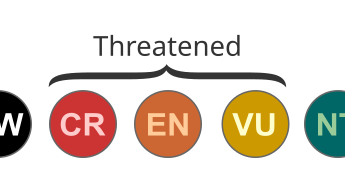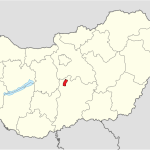 Real estate comprises a substantial portion of what we consider the American commons, but as important as land is, we can’t forget about those assets that lie beneath, grow upon, or billow above it. Clean air, for example, is a priceless commodity. Those who believe otherwise have never seen smog settle like a shroud over Los Angeles or stood downwind of a Concentrated Animal Feeding Operation. Unfortunately, because air cannot be managed the way more tangible solid or liquid resources can, it is often ignored, usually until it is too late.
Real estate comprises a substantial portion of what we consider the American commons, but as important as land is, we can’t forget about those assets that lie beneath, grow upon, or billow above it. Clean air, for example, is a priceless commodity. Those who believe otherwise have never seen smog settle like a shroud over Los Angeles or stood downwind of a Concentrated Animal Feeding Operation. Unfortunately, because air cannot be managed the way more tangible solid or liquid resources can, it is often ignored, usually until it is too late.
The Environmental Protection Agency is responsible for monitoring pollution levels and protecting human health and the environment against airborne contaminants through regulatory processes as well as voluntary programs such as Energy Star and Commuter Choice. The Clean Air Act charges the EPA to set and enforce limits on levels of each identified pollutant. This mandate naturally creates friction between the EPA and those industries for whom the concept of air as a common good is highly inconvenient. Such tension is supposed to be considered normal; businesses imagine themselves beholden only to their shareholders, as if their constituents were somehow above petty needs like oxygen. Still, we can function as a society despite the avarice of certain segments as long as a significant portion of our government considers itself beholden not to big business, but to the American electorate.
When an agency like the EPA serves industry over citizenry, however, the system can fail badly.
Much of what passes for regulation requires the voluntary cooperation of industry, since our current administration is hardly keen on enforcement. Instead, as we’ve seen from agency to agency, our government these days places a high priority on making life as easy and profitable as possible for its corporate owners. Take the Toxic Release Inventory (TRI) program. TRI requires companies to report their toxic chemical releases to a publicly available EPA database that contains information on toxic chemical releases and other waste management activities. The EPA has worked in recent years to lower both the number of companies that have to report their pollution and the frequency of such reports. Kimberly T. Nelson, former Assistant Administrator for Environmental Information and Chief Information Officer of the EPA described the move from annual to biennial reporting as “burden reduction” in a letter to Dick Cheney.
Let’s be clear…there’s absolutely nothing wrong with eliminating bureaucratic friction and streamlining revenue generation. However, the calculus cannot ignore environmental costs, direct or indirect. Such actions are designed to boost the bottom line by pushing costs onto the public. If companies don’t pay to cut down on pollution, eventually we’ll have to do it. Willful pollution is tantamount to stealing from the commons, taking for private profit that which is meant to profit all equally. The economists call this “externalizing costs” but honest observers might use more incisive terms to describe the practice…














Leave a Comment